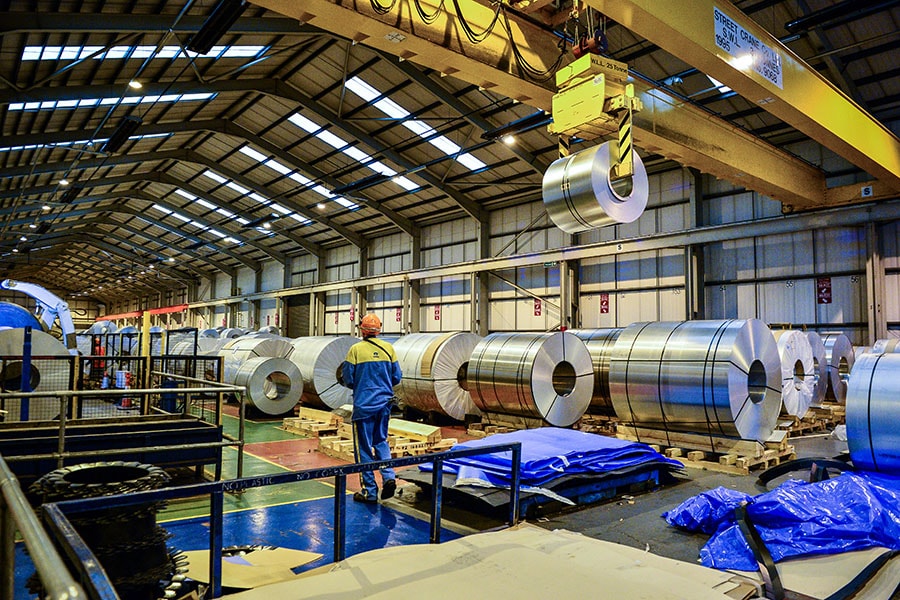
Still no resolution to Tata Steel's UK woes
The Corus acquisition never worked for Tata Steel. Now comes news that the company may be planning a complete exit from its UK operations
 Steel worker uses a crane to handle rolls of steel at Tata Steel's Wednesbury site in Willenhall, Wolverhampton.
Image: Ben Birchall/PA Images via Getty Images
Steel worker uses a crane to handle rolls of steel at Tata Steel's Wednesbury site in Willenhall, Wolverhampton.
Image: Ben Birchall/PA Images via Getty Images
Why did Tata Steel get into the UK mess?
When Tata Steel acquired Corus, it was on top of the global steel cycle. Large steel makers were scouring the globe for assets and in a decade, Mittal Steel had gone from one mill to the world’s largest steel maker with the acquisition of Arcelor in 2006. It was in this backdrop that Tata Steel, which was India’s largest steel company then, acquired Dutch steel maker Corus in 2007. The acquisition happened after numerous rounds of bidding at a $12.9 billion valuation. A year later, the recession of 2008 caused a global collapse in commodity and steel demand and prices.Also read: How digital transformation is aiding Tata Steel's growth in India
What is the issue with the UK assets?
Unlike the assets in the Netherlands, which are near a port and can be used as an export base, the UK assets are nearing the end of their life. The two blast furnaces have to be replaced and the carbon footprint of the facility has to be brought down. This can only be done if the UK government subsidises the cost of new furnaces or else the capital expenditure would render the project unviable. There are also pension liabilities to be taken care of, but that has been spun off into an independent pension scheme—the British Steel Pension Scheme—and those liabilities are off Tata Steel’s books. Brexit has further complicated matters as steel exports are now subject to tariffs.
X





